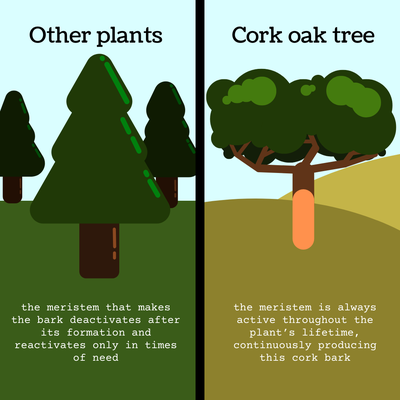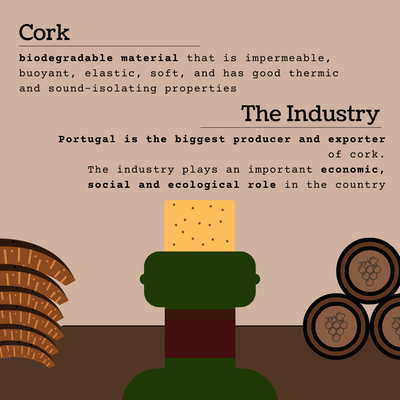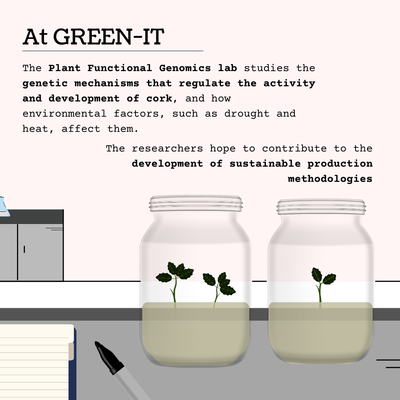Cork Oak: the bountiful tree
Mostly known for its famous homogeneous outer bark made of cork, the cork oak – Quercus suber - is a common sight in Portugal. This tree is native to southwest Europe and it covers around 34% of the national Portuguese territory.
While the mechanism that gives it its most striking characteristic is present in many plant species, the cork oak tree is the only one able to produce cork, in a sustainable and high-quality fashion. At the root of it is the meristem - a tissue made of undifferentiated cells that develops into the tissues and organs of plants. While in other plants, the meristem that makes the bark deactivates after its formation and reactivates only in times of need, for cork oak trees this meristem is always active throughout the plant’s lifetime, continuously producing this cork bark.
Cork is an extremely interesting biodegradable material as it is impermeable, buoyant, flexible, soft, and has good thermic and sound-isolating properties. Its extraction usually starts when the plant is around 25 years old, and afterward in 9-year intervals, and does not require the killing of the tree, unlike wood, making it highly profitable.
In Portugal, the cork industry plays a big economic role. The country is the biggest producer and exporter of cork. It also carries a big social aspect, as production mobilizes many people that inhabit the more desertified areas of Portugal, where the montados are situated. Since the montados usually have low human intervention, they are devoid of chemical products, pesticides, and others, granting them a critical ecological role as a hotspot for biodiversity.
At the GREEN-IT Research Unit, the Plant Functional Genomics lab looks to comprehend this characteristic of cork oak, not found in other Quercus, which is the continuous production of this cork layer of bark. The researchers focus on studying the genetic mechanisms that regulate the activity and development of cork, and how environmental factors, such as drought and heat, affect them.
Through these fundamental studies, GREEN-IT researchers hope to contribute to the development of sustainable production methodologies. This knowledge allows them to assess already established trees, and help predict, for example, their lifespan and yield. Through studying and exploiting the diversity already existing within the species, the researchers also expect to be able to aid the selection of the trees best suited to establish new montados.
Climate change has already started disturbing the productivity of montados, leaving many producers looking to change the paradigm of cork production. This fundamental knowledge of the mechanisms that influence yield is critical to assisting producers in opting for sustainable maintenance practices.
The National Cork Oak and Cork Day is celebrated on June 1 to mark the interest of a species with great historical symbolism and high environmental, social and economic value.





